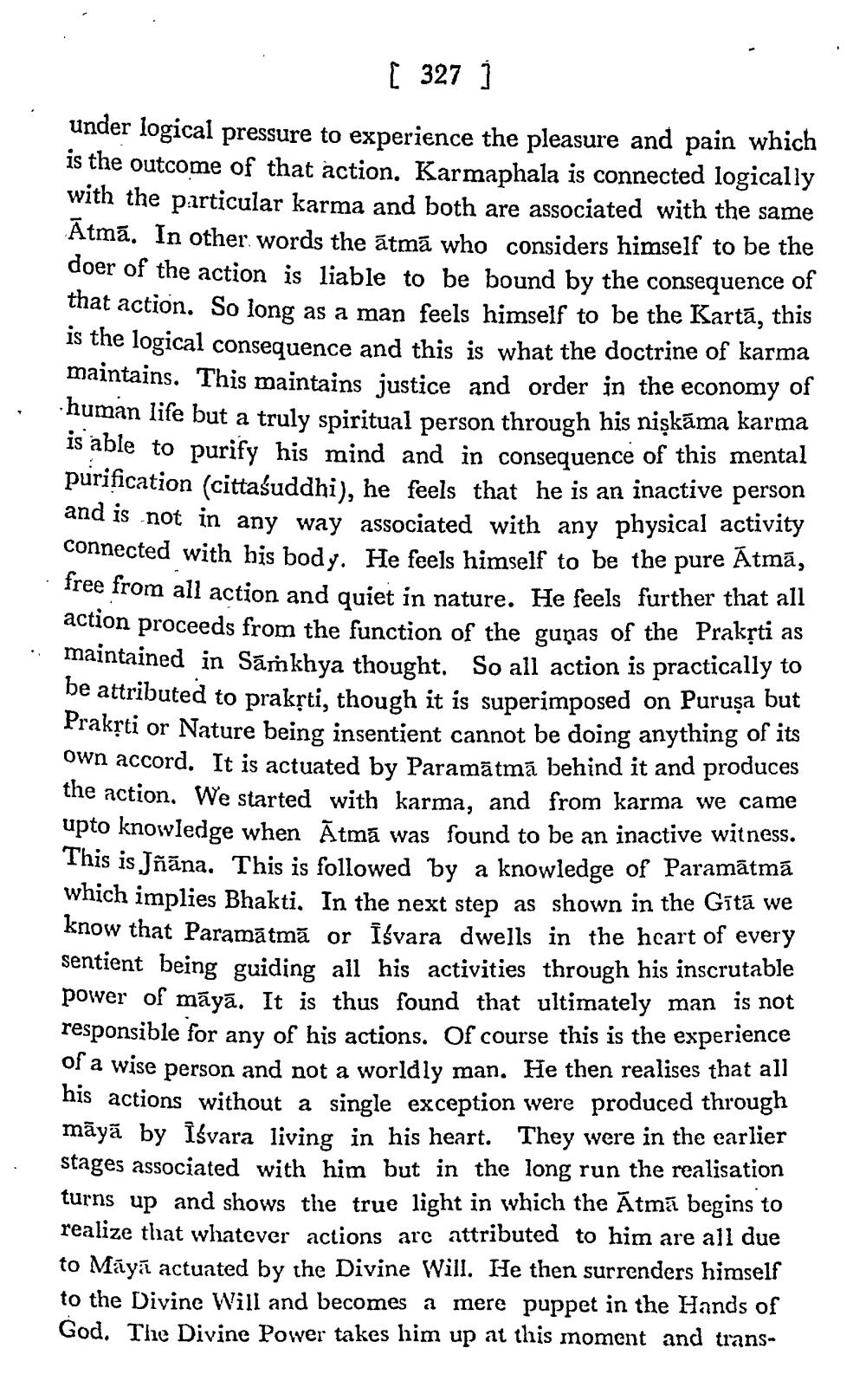________________
[ 327 1
under logical pressure to experience the pleasure and pain which is the outcome of that action. Karmaphala is connected logically with the particular karma and both are associated with the same Atmā. In other words the ātmā who considers himself to be the doer of the action is liable to be bound by the consequence of that action. So long as a man feels himself to be the Kartā, this is the logical consequence and this is what the doctrine of karma maintains. This maintains justice and order in the economy of human life but a truly spiritual person through his niskāma karma is able to purify his mind and in consequence of this mental purification (cittaśuddhi), he feels that he is an inactive person and is not in any way associated with any physical activity connected with his body. He feels himself to be the pure Atmā, free from all action and quiet in nature. He feels further that all action proceeds from the function of the guņas of the Praksti as maintained in Sámkhya thought. So all action is practically to be attributed to prakrti, though it is superimposed on Puruşa but Prakrti or Nature being insentient cannot be doing anything of its own accord. It is actuated by Paramātmā behind it and produces the action. We started with karma, and from karma we came upto knowledge when Ātmā was found to be an inactive witness. This is Jñāna. This is followed by a knowledge of Paramātmā which implies Bhakti. In the next step as shown in the Gītā we know that Paramātmā or īśvara dwells in the hcart of every sentient being guiding all his activities through his inscrutable power of māyā. It is thus found that ultimately man is not responsible for any of his actions. Of course this is the experience of a wise person and not a worldly man. He then realises that all his actions without a single exception were produced through māyā by īśvara living in his heart. They were in the earlier stages associated with him but in the long run the realisation turns up and shows the true light in which the Atmā begins to realize that whatever actions are attributed to him are all due to Māyā actuated by the Divine Will. He then surrenders himself to the Divine Will and becomes a mere puppet in the Hands of God. The Divine Power takes him up at this moment and trans




